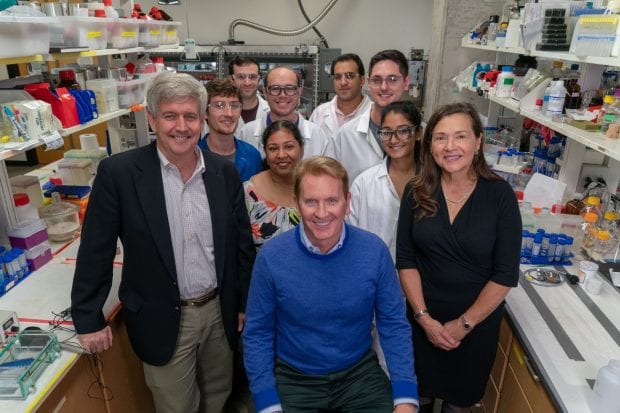When Frank Billingsley announced he had prostate cancer, the outpouring of sympathy was overwhelming. But one email among the mass of messages the chief meteorologist at KPRC-TV in Houston received stood out.
“I got this email from David Jorden’s wife, Melanie,” Billingsley said. “David Jorden is the CEO of Nanospectra,” a Houston-based company conducting a clinical trial of a nanoparticle-based cancer treatment developed at Rice University.
Billingsley had never heard of the treatment developed in the same city where he’s been a popular television personality for almost three decades. His reaction: “Wow, this is really out there, but I would like to at least know about it.”
Maybe it seemed “out there” to Billingsley, but it’s long been a quest of Naomi Halas, Rice’s Stanley C. Moore Professor of Electrical and Computer Engineering and professor of chemistry, bioengineering, physics and astronomy, and of materials science and nanoengineering and the director of Rice’s Smalley-Curl Institute.
Billingsley received a nanoparticle infusion Nov. 27 and underwent a laser ablation procedure Nov. 28 as a part of clinical trials at the University of Texas Health Science Center in Houston. An MRI the next week showed no signs of cancer.
“The nanoparticles are special in that you can design a nanoparticle to absorb light at wavelengths that pass directly through the body,” Halas said. “So if the particles are placed in a tumor site, you can irradiate them with light that penetrates through the body. And the nanoparticles will absorb the light, convert the light to heat and very gently they will induce hyperthermia and destroy just the tumor cells.”
Trial organizers say it’s too early to know whether Billingsley’s cancer will return. He will undergo tests during the next year.


